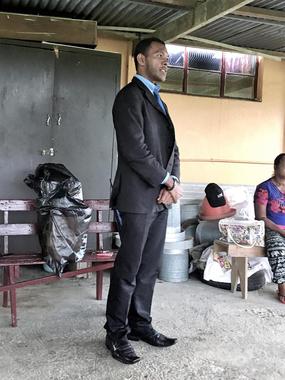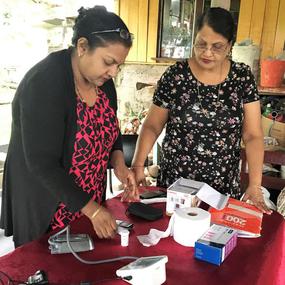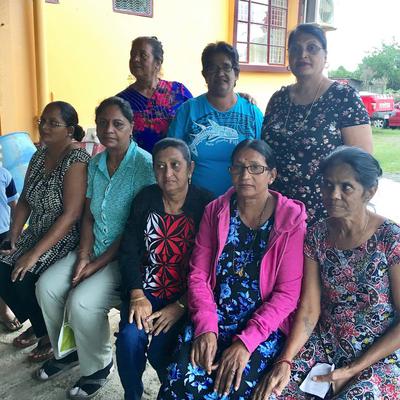Because of financial restriction, traveling to Suva to manage diabetes and complications is not feasible for many in outlying villages.
To monitor known diabetics and those with family members affected by this disease, diabetic peer groups have been organized through the partnering of The Ministry of Health and DiabetesFiji in work places, communities and villages.

In the past, traveling nurses have gone into the villages weekly. Now that the peer groups are organized and meeting, the need for a nurse to visit has been reduced to quarterly—taking pressure off medical professionals.
During a recent peer group meeting in a small Fijian village, Marawa Kiny of DiabetesFiji welcomed the participants and spoke to the importance of their efforts in monitoring and controlling their condition. He encouraged them to be a regular participant in the meetings
Several of the group members in the village have been trained to test blood sugars, then members meet weekly to test, have demonstrations on foot care and nutrition then encourage each other to stay with their healthy lifestyle programs.
One woman at the meeting reported that as she got her blood sugars under control, the infection in her finger was starting to heal.

Another made comment that although she herself was not a diabetic, the information she learned at the peer group meeting was helpful in understanding how to better care for her husband.

LDS Charities (that delivers humanitarian services for The Church of Jesus Christ of Latter-day Saints) supplies the villagers with diabetes testing supplies as well as seeds and plantings for their gardens. The villagers are trained in the care of the seeds and plantings as well as how they can be used in a healthy eating routine.
“If every diabetic in Fiji could belong to a diabetic peer group, amputations would be cut by 80%” exclaimed Elder Dean Clark (a medical professional serving a full-time mission with his wife, Sister Joyce Clark).